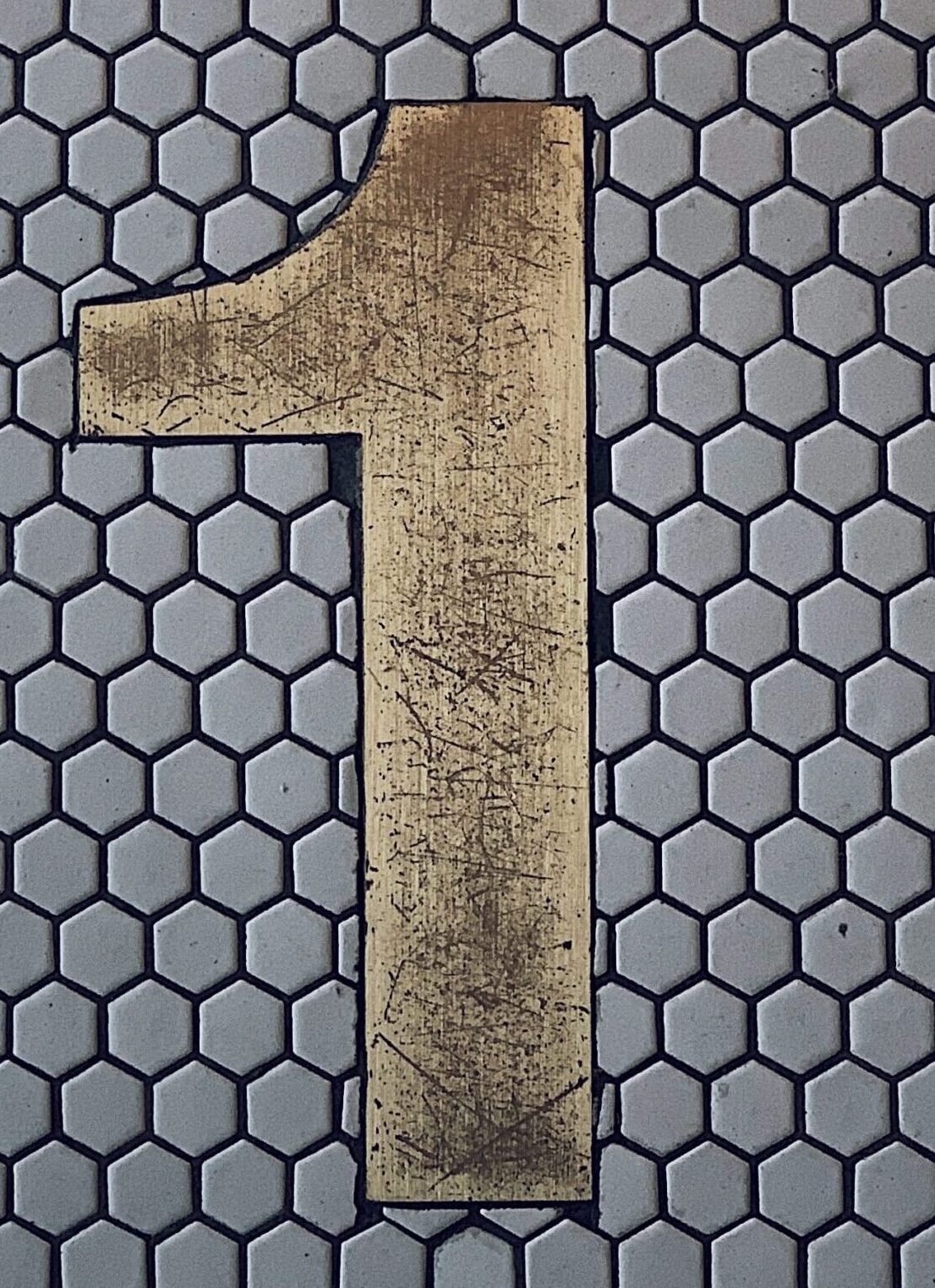“Medicine is like an ocean.” I was told this during my 3rd year of medical school on my first rotation, which happened to be a family medicine rotation. After completing this first year of training, I definitely concur.
Residency, where you learn how to practice as a physician is a critical part of the journey into medicine. The habits that you learn during these training years will last throughout your career. Therefore, it is essential to build a solid foundation for your future self.
As I look back on completing year 1 out of 3, the journey thus far has been interesting. I can only speak from my experience at my training program. From talking to other med school classmates at other programs, I can say that I’m blessed to be at the program that I am at. Each program will have its ups and downs, however, it is up to you to get everything out of the training that will make you the physician that you want to be.
When I applied to med school, I knew family medicine was the field that I wanted to be in. I knew that community medicine was what I wanted. My current training program meets these requirements. For future family residents, where you train matters. If you want to be a hospitalist, ideally you want to train at a hospital-based program. I want to practice outpatient, therefore I chose a community-based program. Therefore, it is important to do your research; you will be spending the next 3 years of your life at that location, therefore choose wisely (See what I did there).
The Good, The Bad of Residency
Dr. Steve Carroll of the EM basic project, states that “Emergency Medicine (EM) Residency is a 3 or 4-year exercise in figuring out what your attendings want. The earlier you accept this, the better and more productive you will be as a resident.”
I really love this quote, I’m and glad I heard it early in my first year of training. Although he is speaking to EM residents, in my experience it applies to family medicine residents as well. Each attending physician has his/her expectations and quirks. From the way you present patient cases to them, to certain medications that they like prescribing. You need to learn these expectations and learn to ride the waves of expectations.
There are certain core faculty that I’ve worked with, and for the past 12 months, I’ve learned what they expect of me. Indeed it took all 12 months, and I’m still learning some of their tendencies. Don’t assume what one attending likes will work for another.
There is an art behind medicine and think of each attending as a different artist. The brush strokes will be unique.
Learning Never Stops
Medical school provides a great foundation, residency polishes it.
During this past year, I’ve learned what is meant by evidence-based medicine. There is a lot of research that dictates the way medicine is practiced. This research helps create the recommended guidelines that are used in medical practice.
The foundations of medicine will always be there, however as research and technology continue to evolve, there will be tweaks in the way that we practice medicine. Therefore we must continue to read and study because some of the management principles that you learned in medical school and residency will be outdated.
Throughout this past year, the learning never stopped. There are multiple articles, journals, guidelines, and textbooks that have been part of the learning process. All these have reinforced what I’ve learned in medical school and have allowed me to view my medical school experience from a new perspective and I’ve learned to determine how certain research applies to the patient population that I work with.
This past year, I’ve learned so many guidelines that it’s hard to keep track of all of them. For example, hypertension – there are multiple guidelines for target blood pressure goals. Which one do you choose? As a resident, you learn about all of them, but you practice base on your institution and attendings.
At the end of a long day, I personally do not like going home and having to spend 2 hours reading, however, I’ve learned that I love listening to podcasts. If you are like me, I recommend listening to residency specific podcasts on your way to and from work and on your lunch breaks. You can get the relevant information you need to help reinforce your knowledge. This has been a game-changer for me. Lectures on the go. Podcasts are not a substitute for reading or doing board review questions, but for me, it gives me a little win, so that on long days, I don’t feel bad not having spent an hour or two reading when I just want to relax and go to sleep.
Board Exams
Throughout residency, the exams don’t stop. Each year you have the In-Training Exams (ITE’s), which allow the program to monitor how well you are retaining information and preparing you to take the board certification exams. So studying and learning never stops.
For the first-year ITE, I can say I was well prepared. My program gave me the tools necessary to succeed (AAFP board review and access to old ABFM ITEs) in order for me to prepare. These, along with the on-the-job training, was crucial to my success.
The ITE is the only real test-like data the program has on you to see your progress. Take it seriously, study like you were going to take the real board exam.
During this time I also took the USMLE Step 3 Exam (Goodbye USMLE). This exam was tough. Two days, 8 hours each was brutal. ITE was significantly less challenging. preparing for both the ITE and Step 3 at the same time helped me significantly in doing well in both exams.
The tricky part of residency is carving out the time to study and finding what motivates you to continue to study after a 12-hour inpatient shift. Also, your monthly schedule varies, it’s consistently inconsistent. The early part of my schedule was not as grueling, which gave me extra time to study for these exams. Depending on your rotation schedule, time management will be key in carving out time to study for these exams. Take them seriously and try to get Step 3 out of the way as early as possible.
Transitioning
It’s great to be done with medical school and actually practicing. The transition from 4th-year medical student to a 1st-year resident is a tricky one. There is a lot of overlap as you learn to get out of the medical student mindset and switch to a physician mindset. As a medical student, I learned how to work up patients and come up with an assessment and plan and present the cases to the attendings. However, I never felt like the patients were mine, as the time on the rotations was limited and I would be moving on to the next one.
As a resident, especially with the continuity clinic at my program, from day one I was told these are my patients for the next three years. That alone was a big difference which requires a shift of mindset. These are patients that I will be building relationships with; these are people that I will be seeing in the community. I was no longer just presenting the patients to the attending. No, these are now my patients. I have to see them as a whole and help them manage the healthcare system. For example, I work with a lot of uninsured patients. That wonderful new drug that I learned about in medical school that they will benefit from – Guess what? They cannot afford it. So what is the next plan? They need x,y,z lab work. Today, they can only pay for one, which should they get first?
As a community family medicine physician, this past year, I’ve learned how social determinants of health truly affects the patient population. I’ve learned that it’s not enough to say that a patient is “non-compliant”. As a family medicine physician, we are part of the community and it becomes important to learn WHY a patient is non-compliant.
My program director told us a story that she had a diabetic patient that she has been seeing for many years and she just could not understand why the patient’s blood glucose was always elevated and why her hemoglobin A1C would not drop below 10. She became frustrated with the patient and wanted to no longer have her as a patient. It wasn’t until the latest visit where she was going to tell the patient she was no longer going to be her physician because she was not able to do anymore for her that she learned that the patient was living below the poverty level and was living on a rice and beans diet and she could not afford anything else. There are many stories like this in medicine and I’ve learned to lean into uncomfortable conversations with my patients.
As a physician, I’m learning how to check my biases and how to not let them affect the way I manage patients. It’s important to get comfortable being uncomfortable and learn how to ask questions such as, “do you have oral, anal, or vaginal sex?” These are uncomfortable topics, but learning to ask these questions can change your management and the way you counsel patients significantly. This year, I’ve learned that I’m not just a physician to my patients, I’m a willing listener, a non-judgemental person whom they tell their secrets to, a community member, and a person that can help them enact significant change in their day to day lives.
This is a Job
For most of us, residency is our first job as a physician. I was fortunate to have worked for several years before going into medical school.
However, many residents spend a lifetime in a school environment and residency is their first job. Therefore, they are learning to become physicians and professionals at the same time. This is another area that requires a significant shift in mindset. Your program will have deadlines and assignments you have to complete. Your patients will be calling you, you will have lab work to review and medications to refill, you need to be able to manage all these in a professional and timely manner. This is the time to fine-tune your time management skills. If this is done throughout residency, I don’t think anyone should have any issues with time management once they become an attending.
Residency is Finite, and There is Light at the end of the Tunnel
This week, the senior residents graduated and are in the process of moving on to attending status. That is the goal. It is exciting to see, and I’m looking forward to that stage when I get there. The first year has flown by, and I’m sure for the graduates that the weight of residency has been lifted from their shoulders and they can move on and practice medicine the way they want. This is a journey that they will forever remember. This is a marathon, not a sprint and it’s ok to pause and appreciate the moment.
For future residents, it’s important to research the residency programs that you will apply for. Remember that this will be your first job as a physician. Like any job, you have some you won’t like and some that you will love that will make you feel like you are not at work. You are going to have co-workers that you get along with and some you do not. No matter what challenges you face throughout residency, keep in mind that it is temporary and that your goal of becoming an attending physician is at the end of the tunnel.




